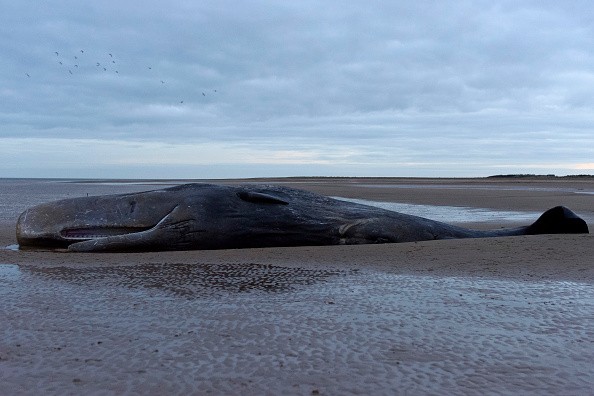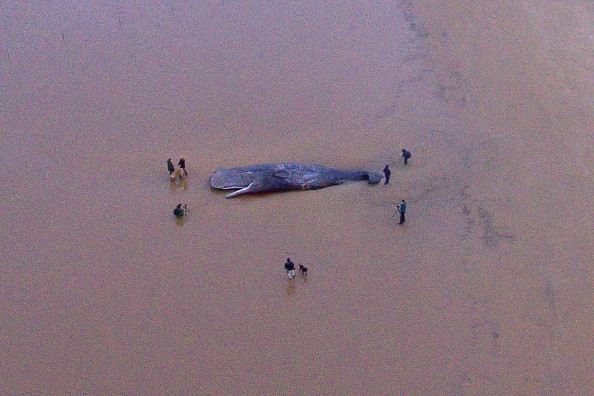Frantic calls began to come in every minute on Saturday morning into the cellphone of Blair Mase with similar concerned eyewitness report: A large sperm whale seems to be suffering near the shoreline at Herman's Bay. The male sperm whale have been washed ashore after allegedly swallowing rope.

The Whale Died Before the Arrival of Veternarians
As the coordinator who looks after the Southeast marine mammal stranding response for the National Oceanic and Atmospheric Administration, she went into action. Harbor Branch Oceanographic Institute responders in Fort Pierce arrived on the beach not too long to discover the 26.5-foot-long, 18,000-pound young male sperm whale floating slowly in the surf.
They went after the animal and waited for it to get to the beach. Mase told TCPalm Monday: "During that time, I was organizing veterinarians and other groups near Florida to assemble and get to the scene of the incident so that we could prepare a response as humanely and rapidly as possible for this whale."
When the whale arrived ashore, it was "very emaciated" and had some rope all over its lower jaw, Mase said. By the time veterinarians got to the scene, the animal had died. Responders sometimes will kill a sick or dying whale, but it's a case-by-case basis and it has to do with whether the animal can be resuscitated, as stated by NOAA.
Necropsy Performed on Dead Whale
Veternarians carried out a necropsy - an autopsy for animals - and collected blood samples. A further examination of the whale discovered more rope in its stomach and esophagus, Mase said. An investigation is underway to find out if that was what killed the animal.
Researchers are not aware of the whale's exact age, when it swallowed the rope or how long it had stayed without eating, but it was "very, very emaciated" when it arrived close to the shore, Mase said. Investigators buried some of the whale's parts in the sand and dragged the rest of the decaying remnant offshore, where other marine life will feed on it, after the necropsy.

The Best Approach
The stranding made wildlife officials to go over crucial advice on the best way to treat a sick or dying marine mammal because people often do harm most of the time than good. Cristina Maldonado of Stuart, a veterinarian at Monterey Animal Clinic, was carrying out a beach cleanup when she was in the company of the early morning beach visitors to come across the whale. "It was traumatic," she said to TCPalm Saturday.
Bystanders with good intentions dragged the dying whale back into the water, people later revealed to NOAA and Maldonado. However, the best strategy is to prevent contact and alert wildlife officials, Mase said. Officials first got concerned calls Saturday morning from beach visitors close to Jensen Beach, near where it was dragged out to sea before it beached at Herman's Bay.
For more news, updates about sperm whales and similar topics don't forget to follow Nature World News!
© 2025 NatureWorldNews.com All rights reserved. Do not reproduce without permission.





